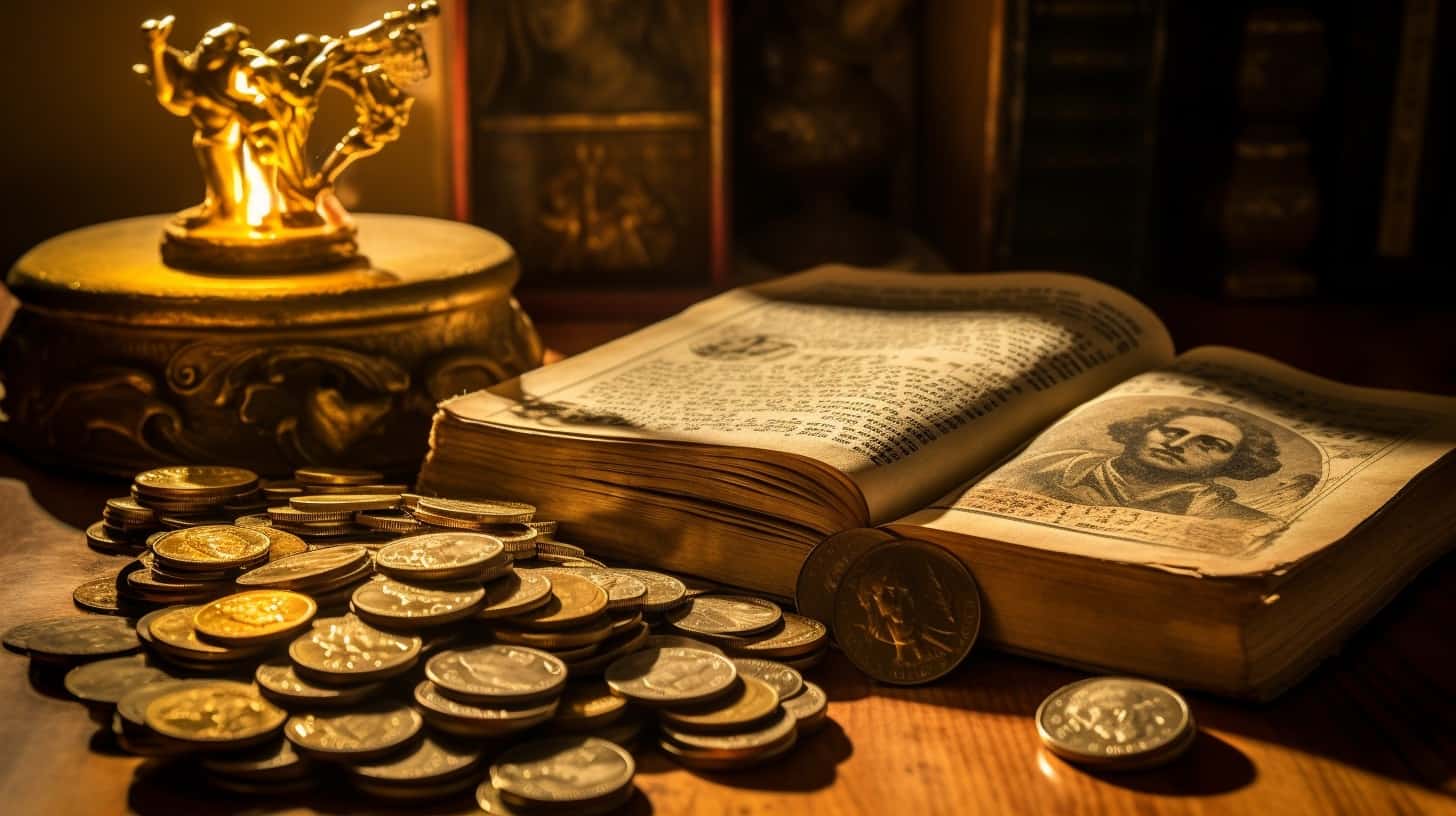Is the $50 bill really unlucky, or is that just a misconception? Some people refuse to accept $50 bills or carry them around because they believe the large denomination bill brings bad luck. But is there any truth to the superstition that the $50 bill is cursed?
In this comprehensive guide, we’ll examine the history and origins of the belief that the $50 bill is unlucky. We’ll also look at some of the rationale people give for avoiding these bills and whether there’s good reason to think twice before taking a $50.
If you’re short on time, here’s the quick answer: While there are a few theories about why the $50 bill developed an unlucky reputation, there’s no real evidence that the bill itself brings bad luck. The superstition seems to originate from gamblers and others involved in illegal activities who preferred smaller denominations.
For most people, there’s no harm in accepting or using $50 bills.
Background and History of the $50 Bill Superstition
Many people believe that the $50 bill is unlucky, but where did this superstition come from? Let’s delve into the background and history of this intriguing belief.
When the belief originated
The superstition surrounding the $50 bill can be traced back to the early 20th century in the United States. It is believed that the origin of this belief lies in the fact that the $50 bill features a picture of President Ulysses S. Grant, who was known for his involvement in corruption scandals during his presidency.
This association with a controversial figure may have contributed to the negative perception of the bill.
Furthermore, some people claim that the belief originated from a misinterpretation of a biblical passage. In the Gospel of Matthew, it is mentioned that Judas Iscariot received thirty pieces of silver for betraying Jesus.
Some individuals mistakenly believe that the $50 bill represents half of this amount, reinforcing the idea that it is connected to betrayal and bad luck.
How it became associated with illegal activities and bad luck
Over time, the belief that the $50 bill is unlucky became ingrained in popular culture, leading to its association with illegal activities and bad luck. This association can be attributed to various factors.
One factor is the prevalence of movies and literature that portray characters involved in criminal activities using $50 bills. These depictions contribute to the perception that the bill is somehow connected to illicit behavior.
Additionally, the $50 bill’s relatively high value compared to other bills may have contributed to its association with illegal activities. Criminals may prefer to use higher denomination bills for transactions, as they are easier to transport and conceal.
It is important to note that the belief that the $50 bill is unlucky is pure superstition and not based on any factual evidence. The value of the bill remains the same as any other denomination, and its use in legal transactions is no different from other bills.
While some individuals may choose to avoid using or accepting $50 bills due to this superstition, it is ultimately a personal belief and not grounded in reality. So, the next time you come across a $50 bill, don’t let superstition cloud your judgment!
Common Theories Behind the $50 Bill Curse
Association with gambling and racketeering
One of the common theories behind the supposed curse of the $50 bill is its association with gambling and racketeering. Some people believe that the bill brings bad luck because it is often used in underground gambling circles and illegal activities.
The notion of the curse may have originated from the idea that those who possess the bill are more likely to engage in risky behaviors and get involved in illicit activities.
Use in bribery and black markets
Another theory suggests that the $50 bill is considered unlucky due to its frequent use in bribery and black markets. It is believed that individuals who possess or use these bills may be more prone to engaging in corrupt practices, leading to negative consequences and a perception of bad luck.
However, it is important to note that this theory is purely speculative and lacks concrete evidence to support its claims.
Appearance of Ulysses Grant on the bill
One curious aspect of the $50 bill that has contributed to the belief in its curse is the appearance of Ulysses Grant, the 18th President of the United States, on the bill. Some people associate Grant with misfortune and failure, attributing these negative qualities to the bill itself.
However, it is worth mentioning that Grant was a respected military general and his presidency played a significant role in the post-Civil War era.
While these theories may provide interesting explanations for the perceived curse of the $50 bill, it is important to remember that superstitions and beliefs surrounding money are often based on cultural and historical factors rather than concrete evidence.
Ultimately, the notion of luck or curse associated with a specific denomination of currency is subjective and varies from person to person.
Who Avoids the $50 Bill and Why
While the $50 bill may seem like just another form of currency, there are certain groups of people who actively avoid using it. Let’s take a closer look at who these individuals are and the reasons behind their avoidance.
Gamblers and superstitious people
One group of people who tend to steer clear of the $50 bill are gamblers and superstitious individuals. In many cultures, the number 50 is associated with bad luck, leading some to believe that carrying a $50 bill will bring them misfortune at the gambling table.
Whether it’s due to a belief in unlucky numbers or simply a superstitious nature, these individuals often prefer to use other denominations when placing their bets.
Some small business owners
Believe it or not, there are also small business owners who shy away from accepting $50 bills. This is often due to concerns over counterfeit currency. The $50 bill is one of the most commonly counterfeited denominations, making it a target for fraudsters.
To protect themselves and their businesses from potential losses, these owners may choose to decline or closely scrutinize any $50 bills they receive as payment.
Those involved in illegal activities
Lastly, individuals involved in illegal activities may also avoid using or accepting $50 bills. This is because large amounts of cash, including $50 bills, can raise suspicion and draw unwanted attention.
By using smaller denominations or alternative forms of payment, these individuals aim to fly under the radar and avoid arousing suspicion from law enforcement or other authorities.
It’s important to note that while these groups may avoid the $50 bill for various reasons, the majority of people have no qualms about using it. Ultimately, whether or not the $50 bill is considered unlucky is a matter of personal belief and circumstance.
Is There Any Validity to the Superstition?
Many people have heard the superstition that $50 bills are unlucky, but is there any truth to this belief? Let’s take a closer look at the evidence.
No direct evidence linking $50 bills to misfortune
Despite the widespread belief, there is no direct evidence to support the claim that $50 bills are unlucky. There have been no scientific studies or credible research conducted on this topic. It seems to be more of a cultural superstition passed down through generations.
It’s important to note that superstitions are often based on anecdotal evidence or personal experiences. While some individuals may have had negative experiences involving $50 bills, it doesn’t necessarily mean that all $50 bills are inherently unlucky.
Belief seems tied to confirmation bias and magical thinking
One possible explanation for the belief in the unluckiness of $50 bills is confirmation bias. Confirmation bias is the tendency to interpret information in a way that confirms one’s preexisting beliefs or expectations.
If someone believes that $50 bills are unlucky, they may pay more attention to negative events or mishaps that involve these bills, while disregarding positive experiences.
Magical thinking may also play a role in this superstition. Magical thinking refers to the belief that one’s thoughts or actions can influence random events. People may believe that by avoiding $50 bills, they can avoid potential misfortunes or bad luck.
Some practical reasons do exist for caution around large bills
While there is no direct evidence of $50 bills being unlucky, there are some practical reasons why people may exercise caution when handling large bills. Large bills can attract attention and make individuals more vulnerable to theft or fraud.
It’s always wise to be cautious and aware of one’s surroundings when dealing with significant amounts of cash, regardless of the denomination.
Additionally, some businesses may be less willing to accept large bills due to the potential for counterfeit currency. This can create inconveniences for individuals who only have $50 bills on hand. It’s always a good idea to carry a mix of smaller denominations to avoid any potential issues.
Tips For Using $50 Bills Safely and Avoiding Potential Problems
Be aware of appearance and perceptions
While the notion of a $50 bill being unlucky is pure superstition, it is important to be aware of the perceptions surrounding larger denominations. Some people may associate larger bills with illicit activities or view them as suspicious.
To avoid any potential misunderstandings, it is advisable to use $50 bills in appropriate settings, such as reputable businesses or establishments.
Take precautions against counterfeits
Counterfeit currency is a concern when dealing with any denomination, including $50 bills. To protect yourself from receiving counterfeit bills, it is essential to familiarize yourself with the security features of genuine currency.
The United States Department of the Treasury’s website provides detailed information on identifying genuine bills, including the $50 bill. Checking for watermarks, security threads, and color-shifting ink can help you detect counterfeit bills and avoid potential problems. You can find out more here – United States Department of the Treasury
Handle large bills discreetly in public
When using $50 bills in public, it is wise to handle them discreetly to prevent drawing unnecessary attention. Being discreet can help minimize the risk of becoming a target for theft or other criminal activities.
Instead of openly displaying a $50 bill, it’s better to discreetly retrieve the bill from a wallet or purse, and if possible, make the transaction in a more private area.
Keep $50s out of sight in risky situations
In situations where there may be an increased risk of theft or loss, it is best to keep $50 bills out of sight. This can include crowded areas, public transportation, or unfamiliar locations. By keeping your $50 bills hidden, you reduce the chances of becoming a target for potential thieves.
Balance with smaller denominations when appropriate
While $50 bills can be convenient for larger transactions, it is also advisable to carry smaller denominations to balance your currency. This allows you to have smaller bills readily available for smaller purchases or situations where using a larger bill might not be appropriate or convenient.
Having a mix of denominations provides flexibility and can help you avoid potential problems.
Remember, while there may be superstitions or perceptions surrounding $50 bills, they are just like any other form of legal tender. By being aware of these perceptions and taking necessary precautions, you can safely use $50 bills without any concerns.
Is The $50 Bill Really Unlucky?
While the reputation of the $50 bill being unlucky is mostly unfounded superstition, some legitimate factors have contributed to its shady history. With basic precautions, most people can feel comfortable accepting and using $50s.
By understanding the background of this urban legend, separating fact from fiction, and using common sense, the $50 doesn’t have to spell trouble or misfortune.
In the end, whether to use $50 bills comes down to personal preference. If you’re highly superstitious or involved in certain businesses, avoiding large bills might put your mind at ease. But for most everyday people, the $50 bill is just another form of legal tender – not a gateway to bad luck.





